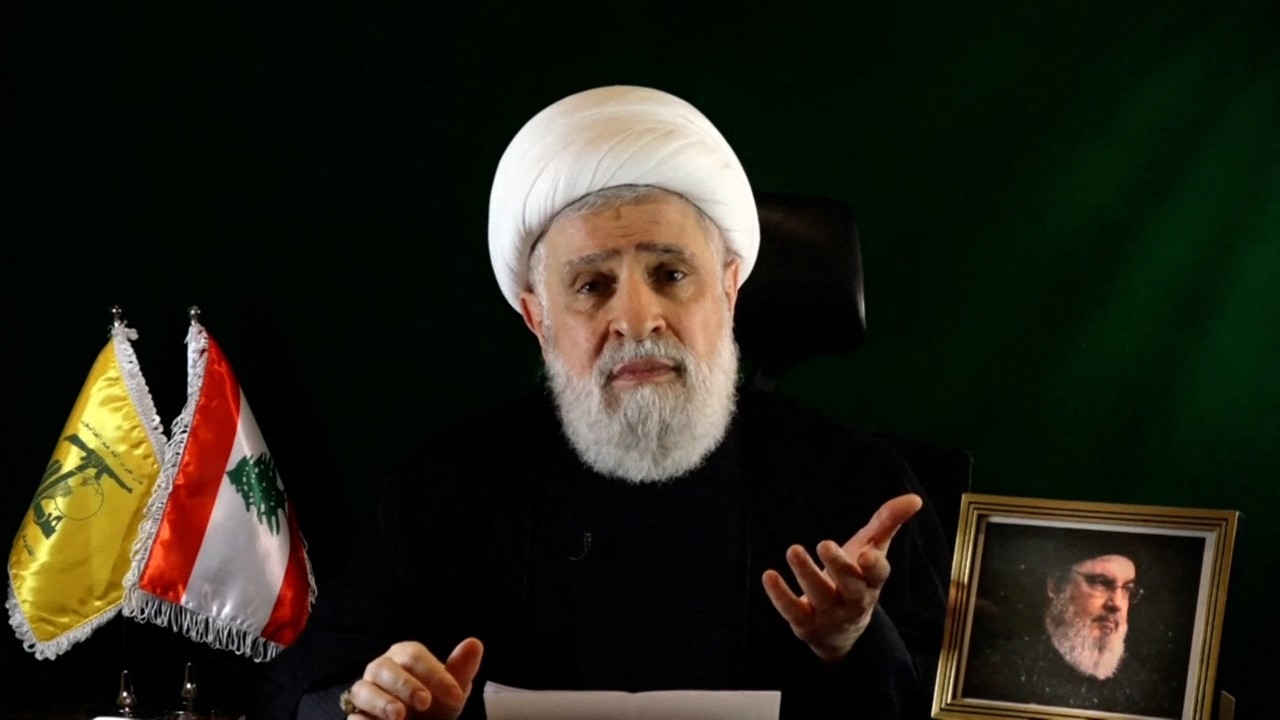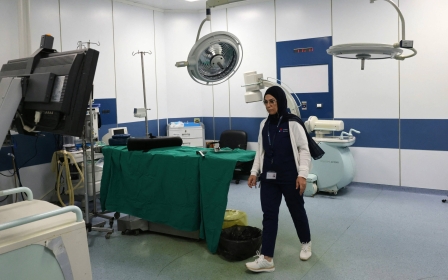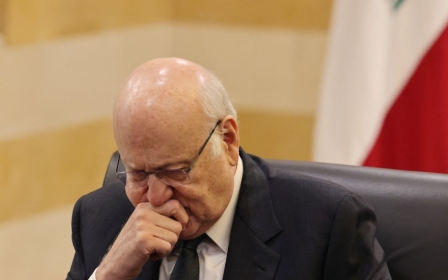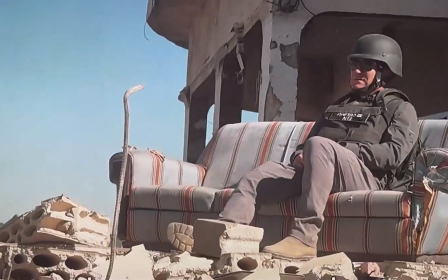Hezbollah appoints Naim Qassem as new leader

Hezbollah has named Naim Qassem as its new secretary-general, weeks after the killing of long-time chief Hassan Nasrallah.
In a statement on Tuesday, the Lebanese group said Qassem was appointed leader due to his "adherence to the principles and goals of Hezbollah".
"[We ask] God to guide him in this noble mission in leading Hezbollah and its Islamic resistance," it added.
Nasrallah was killed on 27 September by Israeli air strikes in Beirut.
Hashem Safieddine, a top leader who was believed to be its first choice to succeed Nasrallah, was killed in an Israeli strike on 3 October.
New MEE newsletter: Jerusalem Dispatch
Sign up to get the latest insights and analysis on Israel-Palestine, alongside Turkey Unpacked and other MEE newsletters
Several other senior Hezbollah figures have been killed in Israeli attacks since war began in October last year.
Israeli Defence Minister Yoav Gallant said that Qassem's appointment was "temporary".
"Temporary appointment. Not for long," he posted on X, accompanied by a picture of the new Hezbollah chief.
Temporary appointment.
— יואב גלנט - Yoav Gallant (@yoavgallant) October 29, 2024
Not for long. pic.twitter.com/ONu0GveApi
Qassem, 71, has long been considered to be the group's "number two".
Born in Beirut in 1953, to a family from southern Lebanon, Qassem began his political activism with the Amal party.
He left the party in 1979 and took part in meetings that would lead to the formation of Hezbollah, which was established in response to Israel's invasion of Lebanon in 1982.
He was appointed deputy chief of Hezbollah in 1991 by then-leader Abbas al-Musawi, who was later killed by an Israeli attack.
Qassem remained as deputy when Nasrallah was later appointed as secretary-general.
For decades, he served as one of the group's most senior spokespeople, conducting regular interviews with foreign media.
Unlike Nasrallah, who largely went into hiding after Israel's 2006 war with Lebanon, Qassem continued to make public appearances.
Since Nasrallah's death, Qassem has made three televised speeches.
In a defiant speech on 8 October, after a string of brutal Israeli attacks on Lebanon, he said the war with Israel was about "who cried first", and that it would not be Hezbollah.
"Our military capabilities are fine. What our enemies say about our fighting capabilities is an illusion. They are lying," Qassem said at the time.
"Our fighters on the front line are solid. What happened over the last 10 days is the pain of the Israelis is increasing. We are telling them, more and more Israelis will be displaced from the settlements. The Israeli plan is to kill Lebanese civilians and empty villages to cause chaos," he added.
"But I tell them, your efforts are a failure."
He also said that Hezbollah supported efforts by Lebanon's parliament speaker, Nabih Berri, to secure a ceasefire.
Middle East Eye delivers independent and unrivalled coverage and analysis of the Middle East, North Africa and beyond. To learn more about republishing this content and the associated fees, please fill out this form. More about MEE can be found here.




